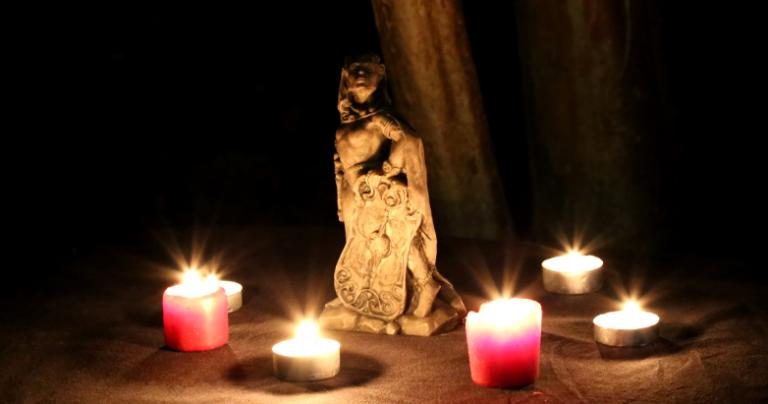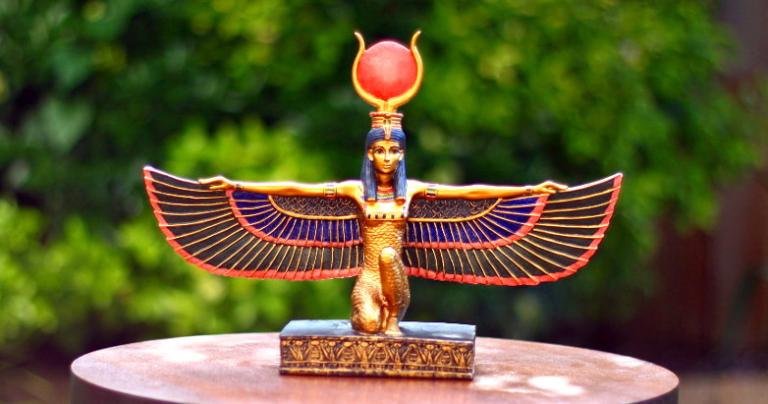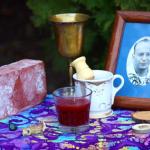Welcome to the first Conversations Under the Oaks, a new monthly Q&A feature. I’ve been responding to questions for as long as I’ve been blogging, but this is the first time I’ve actively solicited questions. This is your chance to ask me anything.
I’ve already responded to some questions. A few were brief enough for immediate answers. Some I’ve already answered and could just post a link to an old blog post or two. One (on prayer) I’m going to turn into its own full post next week. The rest are here.
Questions have been edited for brevity – names are used where I have explicit permission.
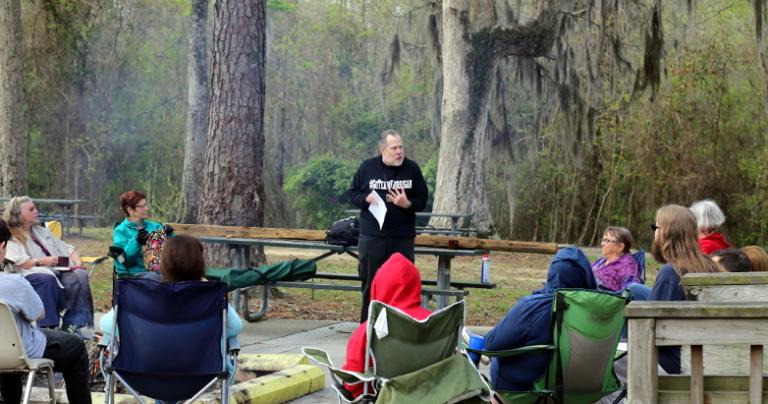
I would like to hear about how you cleansed and warded your new office. What did that entail?
After 16 years in the same office, I moved to the other end of the building a couple weeks ago. I started by cleaning out the old office – I threw out a lot of old papers and junk I had accumulated. Before moving into the new office, I cleaned all the surfaces and cabinets. Never underestimate the power of good mundane cleaning!
I did a brief sweep of the office, using my hand in place of a wand, moving the old energy around and out the door. I drew a pentagram over the door and charged it to protect me from any and all ill intent. Then I concluded with a prayer to the deities I’m closest to, asking Their blessings and protection on this space.
So far so good.
You occasionally mention on your blog that you are a priest of Danu and Cernunnos, which I assume, means that you have made vows to them, binding you to certain obligations. 1) How did these relationships start? Did they ask you to be their priest first, or were you the one offering your services to them? 2) What kind of direct impact did this have on your life? Did anything change beyond that you are now bound to duty?
I’ve written about the beginnings of my relationships with Cernunnos and Danu before. They asked me to be Their priest, Cernunnos first (after many years of relationship building) and Danu later (that one came quickly).
After accepting the obligations and making the vows (I made vows to both of Them at the same time), Their presence became constant and noticeable – They’re never not there. The same is true of my relationship with the Morrigan. Although I am not Her priest, after I made vows to serve Her, She’s never not there. I don’t know how common that is among polytheists, so I wouldn’t assume that would be the case with every person. But that’s what it’s been for me.
The exact wording of my oaths and the content of the promises I made is sacred and not for publication. But you asked what changed – my answer is that Their presence went from occasional to constant.
What is your view of reincarnation? Does anything we do now have any effect later? Is there a process to reincarnation? At what point is it decided that we come back? Or are we just energy and eventually we remain as part of the whole?
Back in August I wrote One Pagan’s Thoughts on What Comes After Death. That may address your question more fully than I can answer it here.
I’m inclined to believe in reincarnation, but it’s a belief I hold very loosely. If I get to the Otherworld and I’m told “that was it – you only get one life” I’ll be surprised but not shocked. So while I have some vague ideas about how reincarnation might work, I have nothing definitive I can tell you, and certainly nothing authoritative.
The one question I will address directly is “does anything we do now have any effect later?” Every action has consequences. Rarely are those consequences formal, such as receiving a prize for winning a contest, or a judge handing down a sentence after someone is convicted of a crime. Rather, you touch a hot stove and you get burned. You smoke cigarettes and you get lung cancer (or maybe you don’t – consequences aren’t always predictable). You spend years practicing meditation and prayer and you find your life is more manageable – not easier, just easier to deal with.
If reincarnation exists, we should expect that what we do in this life will carry over into our next life. Not as a reward or punishment, and not because of some great curriculum of “lessons” we must learn, but because the future is always the consequence of the past.
Does reincarnation continue eternally, or will we someday merge into one great Unity? I’ve had radically different thoughts on that at different times in my life. Right now I’m not very concerned with it, so I have no opinion to offer.
Danna: I’ve realized that all the Deities I thought I worshipped really aren’t “there” anymore, if they ever were. Obviously, I wasn’t that serious in my devotion of them. So my question is what do I do with their stuff: statues and the like? My thoughts are to donate them. I realize the Deities in question are probably not nearly as invested in this question since I never had a connection with them, honestly I never did the work to have a connection.
The context of your question makes it clear that when you say deities aren’t “there” you mean They’re not present in your life, not that They don’t exist.
I think you’re on the right track. Still, these are sacred items, and they should be disposed of reverently and respectfully. Donating them to someone for whom they would be inspirational or an aid to devotion would be ideal.
If they were ever more than just statues (if they were truly dwelling places for Gods) you would need to find someone who would care for them on an on-going basis. That doesn’t sound like it’s the case here, though.
How do you handle people who have the ambition to be community leaders, but who are poison? Maybe they have mental health issues, maybe they are just too narcissistic. It is hard to exclude people when your basic desire is to be inclusive, but some people will tear your community apart.
This is hard.
The short answer is to set high, clear standards, and then enforce them. If someone is toxic, they cannot be allowed into leadership positions. Sometimes they can be ignored or outvoted. The problem is that most Pagan organizations are perpetually short of leaders, so it’s hard to say no to someone who’s willing to do the work.
A community without standards isn’t a community, it’s just a collection of individuals. And the first standard has to be that the community is more important than any one person. That means removing toxic individuals – gently if possible, forcefully if necessary – rather than allowing them to poison the community. It also means the healthy leaders have to be willing to have a confrontation when necessary. Which is also hard.
It helps to have established leaders demonstrating healthy behaviors. Most toxic people aren’t completely clueless – if they see they aren’t going to get what they want, they’ll keep moving.
There is no silver bullet here. Just lots of hard and unpleasant work. Good luck.
Lorie: I am being pulled in two directions. One ancestor whispers of Romani knowledge through my Czechoslovakian grandmother and the other ancestors cry of my Welsh ancestry through my grandfather. I have studied half a year of OBOD materials from England and about 12 years of witchcraft through various sources. I need to land somewhere but I don’t know where I belong yet. How do I reconcile this?
One thing I find that I cannot be nudged on and that is my desire to practice alone. I feel much freer to give of myself in ritual if I am alone and I share constantly with my ancestors while I am alone.
I think you need to take a deeper look at your questions.
Romani and Welsh aren’t paths or traditions like OBOD or ADF or any of the witchcraft traditions. They’re living, breathing cultures with their own languages, customs, and most importantly, people. They’re communities. And that’s at dire odds with your desire to practice alone.
The handful of Welsh people I know have been very welcoming to those who want to come to Wales, learn the language, and participate in the culture. But they look rather unfavorably on those call themselves Welsh without doing any of those things.
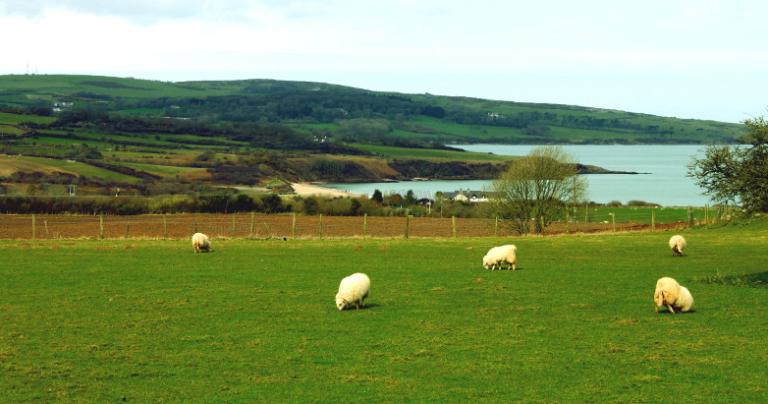
I do not know any Romani people, but my understanding is that they are very guarded with their culture, and with good reason. They have been harassed and oppressed every place they’ve ever lived and are justifiably untrusting of strangers.
You say “I don’t know where I belong.” This is a common feeling among those of us in North America. Our ancestors were cut off from their indigenous religions hundreds of years ago, but at least they had their land and cultures. We have neither. We have to form our own relationships with the land where we are, and with the people who are or who will become our families.
I can’t help you with the Romani, except to warn that if a book or other resource is written by someone who isn’t Romani themselves, it’s highly suspect.
There’s plenty of Welsh material available. Start with a good history – I read A Concise History of Wales by Geraint H. Jenkins. Read the Mabinogi. Read From the Cauldron Born by Kristoffer Hughes. If Wales calls to you, explore it further.
And if it doesn’t, if what you’re looking for is a magical tradition and not a culture, that’s OK. OBOD is a very good tradition. So is ADF. So are dozens of other Pagan groups and traditions and orders. But they’re not living, breathing cultures.
Being Pagan is all about the experience, but when one is not going to get along with the concept of a tradition, how does one further one’s growth? I just don’t get the whole oath bound concept and have struggled my whole life trying to understand the need for any “mile marker” ceremonies be they mundane or spiritual.
Although experience is a very important part of my Paganism (which is why it’s in the subtitle of my book), I wouldn’t say Paganism is all about the experience. Paganism is about many things, and I’d put relationships at the top of that list. Some of our relationships are with Nature, some are with Gods and spirits, and some are with other people.
Not all Pagan traditions are oath-bound. Some of those that are oath-bound have material that needs to be learned sequentially: you need to master the first degree before you try to tackle the second degree. Others involve experiences where vulnerability is required. Knowing that what happens in the circle will stay in the circle allows people to relax and participate fully.
Our mainstream society does a very poor job with rites of passage, and thus we don’t realize what we’re missing. “Mile marker” ceremonies reinforce the idea that our status has changed, and thus our rights and responsibilities have also changed. Many of these status changes happen gradually – we may not realize how much we’ve changed. The ceremonies help draw a clear bright line between “child” and “adult” or between “devotee” and “priest,” to name just two.
One of the advantages of working within a tradition is being able to use that tradition’s roadmap for growth. In OBOD you move from a non-member to Bard, from Bard to Ovate, from Ovate to Druid, and from Druid to Druid graduate (OBOD has no formal term for those who’ve completed the Druid grade – I’ve heard some use “Druid graduate” and I like it).
If you aren’t in a tradition, then you have to chart your own course. The upside is that you can design your own program from start to finish, emphasizing what you like and skipping what you don’t. The downside is that you have to do the work to design your own program from start to finish. That also means you don’t have the benefit of elders who’ve already walked the same path. If you get stuck, you have to get yourself unstuck… and many don’t.
Some people are called to be solitary practitioners. Some are called to blaze their own trail. It can be done. But it’s very hard.
Thanks for all the questions. We’ll do this again in January!


